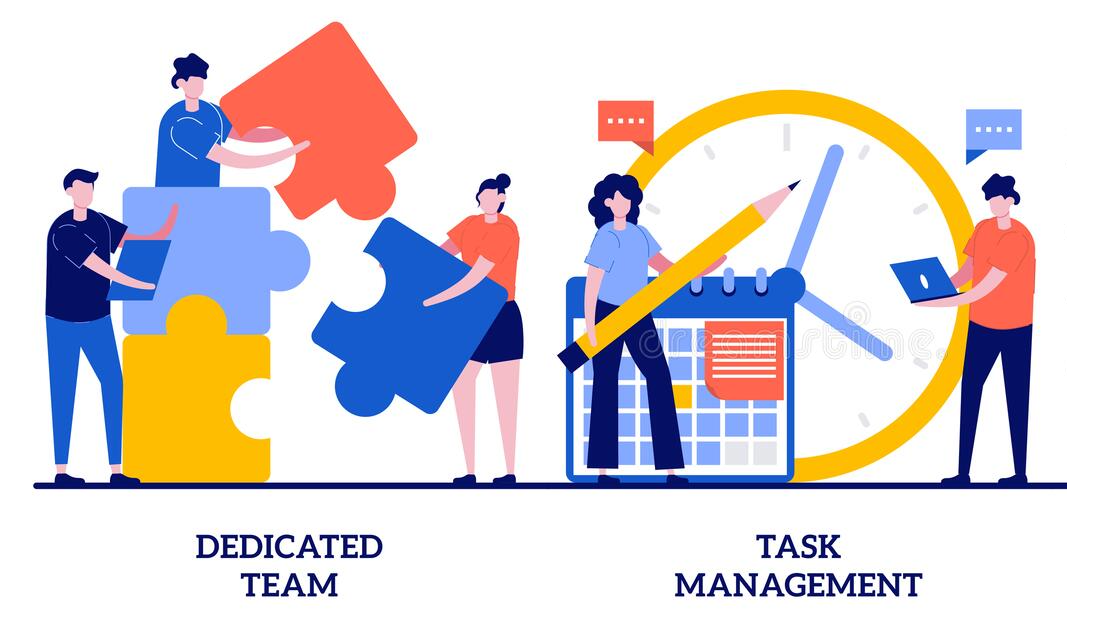NOTE : All Participants are requested to keep ready their Android/Laptop and a well performing internet connection before joining the groups.
Z-Culture is a project designed to offer students an opportunity to work in a national virtual team (NVT) and complete a project for a real life culture/business client and, in the process, experience the challenges and learn the best- practices of national virtual collaboration.
Just like a real life culture/business project involving people from different states in India, participation in Z-Culture is very demanding. You will experience problems and conflicts. There will be times you will be frustrated and upset. Some of your team members will disappoint you. However, you will also learn a lot in the process. When you work again in a NVT as part of your job, you will be much better prepared. You will know better what to expect and how to resolve problems when they arise.
You will also have many pleasant experiences, moments of discovery, personal and professional growth. You will meet people from around the all over India, make friends, learn about new cultures and businesses, as well as acquire new skills and qualifications that will help you in your career.
When the project is over, you will be happy you had this experience. You will also receive a Z-Culture certificate and recommendation letter that will significantly improve your chances of getting a good job.

The challenges you will experience in Z-Culture are precisely the same challenges you will experience when you have to work in a team as part of your future job. Z-Culture is like a time machine that shows you what will happen to you when you work with people from around the all over India as part of your job. It will not be any different and the better you learn now how to deal with those challenges now, the more effective you will be on a similar project in the future.
The Task
You will be working in a national team of 4-6 people for about 5-7 days. Every semester, we select several topic that present their real-life national culture/business challenges. Your team will have to select one of those challenges present your solution in the form of a report.

The detailed list of tasks to be completed for each challenge is provided in the Challenge Instructions that are posted on the project resource page:
Early Track resource page: z-culture.in
Weekly Progress Surveys

All Z-Culture participants must complete weekly progress surveys. The surveys will ask you to report your progress and answer a few questions about your team. The information will be used to identify participants who may be struggling so we can provide help. The data will also be used for research purposes, so we can better understand why some teams perform better than others and how the project can be improved in the future.
Every day, each student will receive an update on the website containing your daily performance review and personal progress link. The links are due every day, 11:59 pm.
IMPORTANT: Please do not wait until you receive the email with the survey link to start working on that week’s task. All weekly tasks are listed in the Challenge Instructions and the email/link will provide no new information, only the link to the survey. You can complete the work at any time and submit your progress survey between Wednesday and Sunday of each week.
NEXT STEPS:
- Review project materials
- Take Readiness Test
- Contact team
- Follow the Challenge Instructions
Evaluation (Grading/Marking)

Most Z-Culture participants are college/school students who participate in the project for a new skills learning. For most students, there are so many team student professionals. They are completing the project for national culture/business training and experience and are not receiving academic grades/marks for their work.
We track the performance of all Z-Culture participants and teams, including college students and non-student professionals. The following information is collected and used to (1) identify problems and provide help when needed, (2) select the best teams at the end of the project, and (3) provide the instructors with the necessary information to give their students project grades/marks:
- Performance on the Readiness Test (percent of the correctly answered questions, must get at least 60% to be placed on a team).
- Ability to meet weekly deadlines as per the completion of weekly progress reports.
- Weekly peer evaluations (if participating in a team):
- Effort
- Intellectual contribution
- Leadership and help with team coordination
- Friendliness and collegiality
- Help with writing the report
- Quality of the report (as evaluated by expert appraisers):
- Quality of each report part
- Creativity and novelty of the teams
- Depth of analysis, the strength of the arguments
- Formatting and presentation
- Plagiarism (reports are automatically checked for plagiarism)
For most students, the quality of the report accounts for 40-60% of the project grade/mark, peer evaluations for 30-50%, and weekly progress reports for 10-20%. The exact grade/mark structure is determined by each instructor to ensure it fits the structure and institutional policies.
IMPORTANT: Students who receive negative peer evaluations (below 2.0 on a 5.0 scale) will receive a warning. If the peer evaluations do not improve (below 2.0 two weeks in a row), the person will be excluded from the team.
Plagiarism
The reports will be submitted which automatically scans them for plagiarism. The system checks millions of online sources and identifies all parts of the report that have been copied and pasted. Some similarities are acceptable (e.g., correctly cited quotes and extracts), but if a substantial portion of the report has been copied and pasted, or the work of others is not properly cited, the report will be flagged for plagiarism. The results of the plagiarism analysis are automatically shared with the Z-Culture admin and all participating instructors. Any project participants who submit plagiarized work will be immediately removed from the competition.
Expected Time Investment
| Task, Students | Approx. Combined Hours |
|---|---|
| Before the project starts: | |
| Pre-project review of the materials | 1-3 |
| Readiness Test | 1 |
| During the project: |
|
| Correspondence with teammates, per week | 1-2 |
| Research and report write up, per week | 1-2 |
| Other unexpected tasks and issues that need to be addressed | 1-2 |
| After the project: | |
| Post-project survey | 1 |
| TOTAL over the entire semester | 20-40 Hours |
Coaching
As an experimental program, trained coaches will be available to the Z-Culture participants or your college teachers will be trained coaches as a guide. The coaches are recruited from former Z-Culture participants who successfully completed the project. They receive additional training in areas ranging from cross-cultural communication and conflict resolution to business report writing. They will be able to help you with the following:
- Provide feedback on your work, point out problems and suggest improvements;
- Help resolve challenges your team may experience with coordination, leadership, scheduling, workload distribution and more;
- Help deal with personal challenges, ranging from bullying and harassment to interpersonal conflicts, to other personal issues.
It is important to understand that the coaches are not your team leaders or decision- makers. Their job is only to advise you, provide feedback on your work, or direct you to the right resource. You and your team are responsible for your team and personal decisions, deadlines, and work.

You can direct your questions or requests to support@z-culture.in and your case will be assigned to an available coach specialized in your particular area of concern.
More serious cases (sexual harassment, bullying) will be directed to the experienced professors on the Z-Culture Executive team.
Z-Culture national Collaboration Certificates

Every participant who successfully completes the project will receive a Z-Culture certificate. Electronic high- resolution print-ready certificates will be sent to instructors who can print and distribute them to the students at the end of the project.
Teams vs. Individual Participants

Z-Culture is designed for students seeking to gain national collaboration experience. Completing a project in a NVT is the main reason for students to participate in Z- Culture.
However, Z-Culture is also open to non-student participants. Everyone with an interest in national collaboration and consulting is welcome to take part in the competition to gain national collaboration experience, receive the Z-Culture Certificate, and possiblywin the Best Report prize, like scholarship and international collaboration opportunity. While student participants are required to complete the project in teams.
Team Leadership

Z-Culture admin does not assign team leaders. Each member of your team will receive the names and email/contact addresses of the people on the team, and it will be up to the team to decide how to distribute the workload and coordinate.
Our research shows that teams tend to perform better when they either formally elect a team coordinator or have an informal team leader who does the coordination, sends out reminders, etc.
There is no bonus for being a team leader and no penalty for not being one. Usually, team members are flexible about who does what, so if you are interested in a particular role, chances are, your team will support that.
While most students think that cultural differences or poor language skills will present the biggest problems, our data show that most serious problems arise from delays in making decisions. If the team lacks coordination, making a simple decision may take days, if not weeks.
Teams that have a team coordinator tend to make faster decisions. It works even better if the team coordinator keeps track of workload distribution, sends reminders, and does other coordination work.
If no leader emerges in your team naturally in the first few days of the project, don’t wait for someone else to tell you what to do. Be proactive and take the initiative. Your team will appreciate it.
Communication

It is up to your team to decide how you will communicate with each other. Much like in the corporate environment, you will receive only the names and emails of your teammembers, so you will have to initiate contact via email. Once contact is established, you will have a host of free and effective communication tools available to you to discuss ideas and co-edit the team report. Some teams rely on emails and document attachments only. Most teams also use Skype, Facebook, and other chat and conferencing tools. Other popular tools are Google Docs and Google+, Dropbox, Viber, and Doodle. A detailed explanation of how each of these tools works is provided at the end of this document.
Our research shows that teams that go beyond simple email communication and use more advanced tools such as Skype, Dropbox, and Google Docs tend to perform better. If you rely only on email, you will likely end up with multiple conflicting copies of the same file. It will also be challenging to keep track of who did what and how much progress the team has made.
Also, note that the tools listed above are the same or similar tools that are used by corporate employees and managers around the world. We encourage you to try at least some of them. Multi-user voice conversations and video conversations provide a much richer communication medium than email. Dropbox and Google Docs make co-editing a team report much easier than sending multiple email attachments back and forth. Scheduling a team meeting using Doodle is very easy, and Google Docs provide an excellent opportunity for an anonymous discussion if you need to discuss a sensitive issue and openness is essential. Learning to use these tools will help you in your future career.
Motivation, Commitment, and Free-Riding

Virtual teams are very different from face-to-face teams. In traditional collocated teams, team members know one another, spend time together, have shared experiences, common interests; they are like one another. In virtual teams, team members often do not even know what other team members look like. They have little shared experiences, often different cultural backgrounds and little in common. So, the members of virtual teams never develop the same social ties and don’t feel the same sense of obligation to their team members.
Our research shows that much of the free-riding occurs not because some team members are lazy or don’t care, but because they are overwhelmed by the complexities of NVT work and just do not know what to do.
It helps a lot to have a discussion early on in the project and decide who does what, when, and how, and what happens if somebody is not doing his or her work. It is also important to plan for some free-riding. Expect to “lose” at least one team member to free-riding at some point and have a plan in place for how the team will handle the situation when one or more team members are not doing their work.
Conflicts

When every team member comes from a different culture/different states, and the task is very demanding, conflicts happen all the time. You will likely experience at least some conflicts in your team. This is normal and inevitable. If a dispute occurs, stay professional. Do not call the other party names. Do not use threats. Do not get personal.
Our research shows that conflicts are resolved best when parties acknowledge the disagreement and try to find a consensus. Rather than arguing and fighting, it is better to say something like: “I see we have different opinions on this issue, let’s see where we differ, ask what the rest of the team thinks, and together find a mutually- acceptable solution.”
If the conflict gets personal and involves name-calling, make copies of such correspondence and send it to the Z-Culture Admin (admin@z-culture.in). We will try to help you solve the problem.
Sexual Harassment and Bullying
Although very rare, we occasionally receive complaints about sexual harassment. Usually, a male team member stalks a female team member, making her membership on the team uncomfortable. It may involve explicit comments about the team member's appearance, liking all team member’s photos on Facebook, repeated requests for live video chat or a meeting in person, and other behaviors of this kind. When confronted about it, the explanation is usually a cultural one: “I was just trying to be gentlemen and show my interest and respect for my female team member. I did not think she would not like it.” Other forms of sexual harassment or unsolicited attention are also possible. In extremely rare cases, when rejected, some team members may react aggressively.
Although these cases are extremely rare, we take them very seriously. If anything makes you uncomfortable or you witness any form of harassment or bullying, please inform the Z-Culture Admin at (admin@z-culture.in) immediately. We will try our best to address the situation and, if needed, may even exclude from Z-Culture the student who is behaving unprofessionally.
Participation Fees

